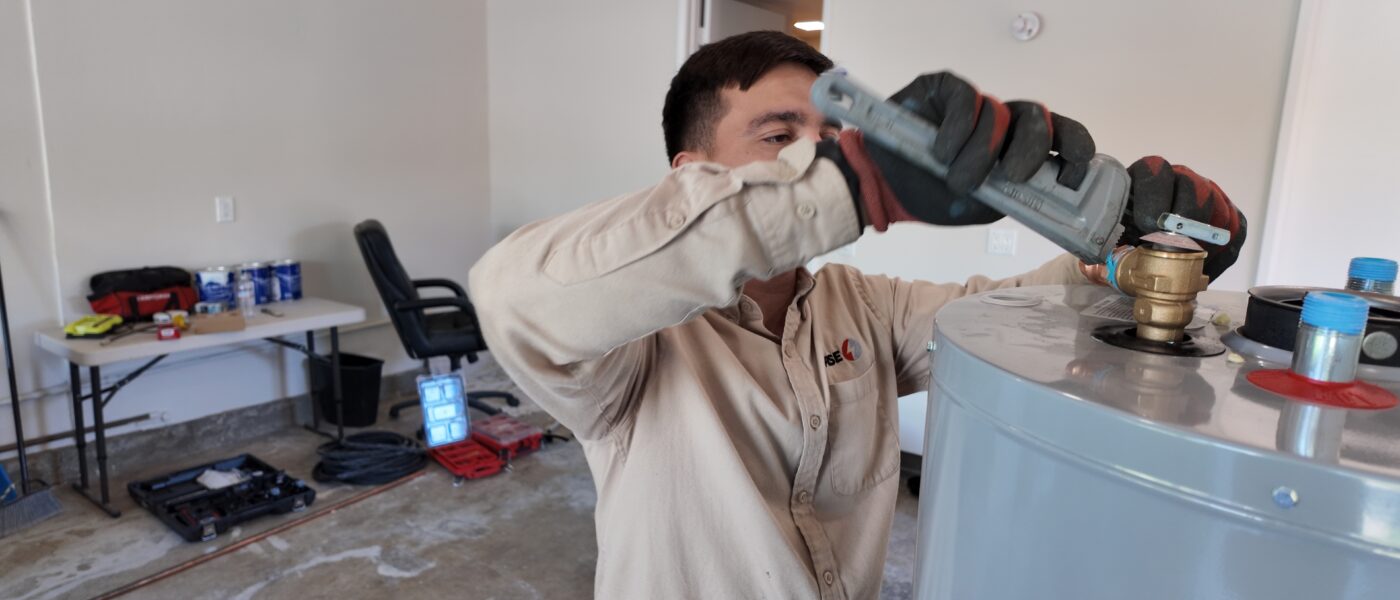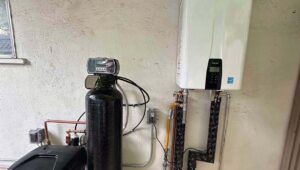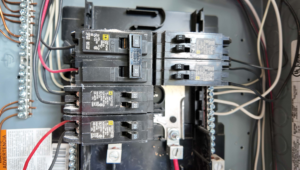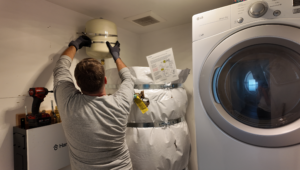When it comes to hybrid water heater vs tankless, many people are lost in the choice. And that’s completely normal! Both options are very comfortable and energy efficient, meaning they save your money. But the main difference is in operation. So, let’s choose your hot water heater together!
Looking for a water heater replacement in San Jose? Fuse Service specialists will help you choose and install the best option.
Hybrid Water Heater vs Tankless—What Sets Them Apart?
In short, a hybrid water heater takes heat right from the air. Tankless is the flow-through version. It’s because it only heats water when you open the faucet.
You can see the difference between tankless vs hybrid water heater very clear. The hybrid works like a refrigerator in reverse. It actually pulls energy from the air. Why? That’s how it stores a supply of water. Tankless doesn’t store anything. You heat as much water as you only need right now.
Upfront Cost vs Long-Term Savings
The initial investment often decides everything. Hybrid costs less. Tankless is more affordable but you should also pay for pipe/electrical rework.
If we speak about money, which is cooler: tankless water heater vs hybrid? Well, honestly, hybrid wins in the long run. But an average tankless is cheaper itself. So, you choose!
Efficiency and Energy Use Compared
If your goal is to minimize your bills, it’s worth taking a closer look at hybrid. It saves up to 60% of energy. Tankless saves less (about 30-40%), but the hot water is almost endless.
Consider the opposition between tankless vs hybrid water heater from the point of view of whether it is more important for you to save energy or to get more hot water.
Space, Setup, and Installation Requirements
The availability of additional space or additional installation costs can be a deciding heat pump water heater vs tankless factor. Our craftsmen know this firsthand.
- A larger hybrid needs a basement, garage, or at least a separate corner.
- Whereas a tankless can be simply hung on the wall and takes up almost no space.
But there is a nuance: for tankless, sometimes you will have to reinforce the wiring or gas line. This can cost almost as much as another heater. So, think twice or consider even more options.
Maintenance, Repairs, and Lifespan
There are lots of tankless water heater vs hybrid water heater differences. But probably the biggest one is maintenance:
- Choose hybrid? Remember to take care of the filters and a heat pump regularly.
- Tankless needs descaling and regular flushing.
Lifespan also makes a difference:
- Hybrid: approximately 10-15 years.
- Tankless: 15-20 years.
Rebates, Credits & Environmental Impact
Whichever option you choose, it will be eco-friendly. Do you know why? Because both options qualify for energy efficiency programs. But the hybrid heater reduces CO₂ emissions more noticeably.
And what about money? Well, hybrid also wins because it gets more rebates. Tankless can also qualify for tax credits, but the amounts are, let’s be honest, slightly more modest.
Tankless vs Hybrid Water Heater—Which One Fits Your Home Best?
The decision here is yours alone. For a large family with multiple bathrooms, a hybrid is best. But tankless for sure saves energy better.
For an apartment or a small house where space is very valuable, a compact tankless is better. But if in doubt, it’s better to consult the water heater service experts from Fuse Service first.
As a technician with 10 years of experience, I’ll be honest: there is no one-size-fits-all answer. Do you live in the mild climate of CA? Well, a hybrid is a nice choice. But if compactness is important to the client, we go with tankless.
— Ben, Fuse Service certified plumbing specialist







